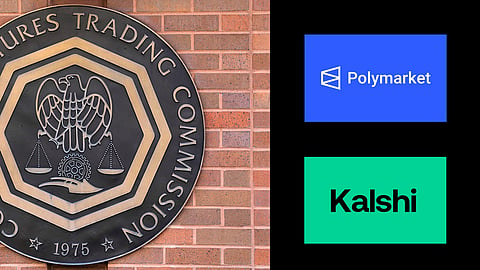

Key takeaways:
Unprecedented tribal unity: Eleven diverse tribal organizations submitted identical opposition to sports prediction markets in CFTC comments.
Sovereignty concerns: Tribes warn federally regulated prediction markets threaten exclusive gaming rights and revenue-sharing agreements with states.
Regulatory disparity: Platforms like Kalshi operate nationwide without gaming taxes or responsible gambling measures required of tribal operators.
Political stakes: CFTC leadership nomination of Kalshi board member signals potential showdown over sports wagering regulation.
In a rare display of consensus, Native American tribes across the United States have united to oppose the expansion of prediction markets into sports event contracts, warning that these platforms threaten tribal sovereignty and gaming revenues.
The Commodity Futures Trading Commission (CFTC) received 19 submissions during its public comment period ahead of an April 30 roundtable on prediction markets. Eleven of these came from tribal entities, all expressing nearly identical concerns about platforms like Kalshi and Polymarket.
"Allowing Sports Contracts to be listed and traded will interfere with the sovereign right of tribes and states to exercise their police power to regulate gaming within their respective territories," stated the Indian Gaming Association (IGA), which represents 124 tribes nationwide.
Unlike traditional sportsbooks, prediction markets operate under federal oversight rather than state regulation. These platforms allow users to purchase contracts based on event outcomes and are currently legal in all 50 states - including those where tribes hold exclusive gaming rights through compacts with state governments.
Tribal organizations argue that sports prediction markets fundamentally undermine the Indian Gaming Regulatory Act (IGRA) and could devastate revenue-sharing agreements worth billions of dollars that fund essential tribal services.
"Trading of sports contracts is gaming, violates state and federal law, and is contrary to public policy," the IGA emphasized in its submission. Tribes highlighted that these platforms aren't subject to gaming taxes or responsible gambling measures, creating an uneven competitive landscape.
Scott Crowell, a tribal gaming attorney, described the situation at the Western Indian Gaming Conference as "a different kind of threat" that could render other gaming controversies "moot" if left unchecked. The nationwide reach of prediction markets gives them access to hard-fought tribal markets like California, Minnesota, Oklahoma, and Florida.
The American Gaming Association (AGA) joined tribes in expressing "very strong concerns" about sports betting futures being available to retail customers across all states. However, DraftKings CEO Jason Robins has taken a more neutral stance, suggesting prediction markets might actually increase "the total addressable market" for such products.
Offering a contrasting view, the Campaign for Fairer Gambling (CFG) suggested that prediction markets could provide a more transparent alternative to traditional sportsbooks. "If politics and cultural events markets are acceptable, then there is no inherent rationale to indicate that sports events are not," the group wrote.
The upcoming CFTC roundtable comes at a politically charged moment. President Donald Trump has nominated Kalshi board member Brian Quintenz to lead the agency, potentially signaling a permissive approach to sports futures despite tribal opposition. Trump has historically clashed with tribes over casino rights.
As the CFTC deliberates, the battle lines are clearly drawn: tribal interests fighting to protect sovereignty and revenue streams versus prediction markets seeking to reshape the landscape of sports wagering nationwide.